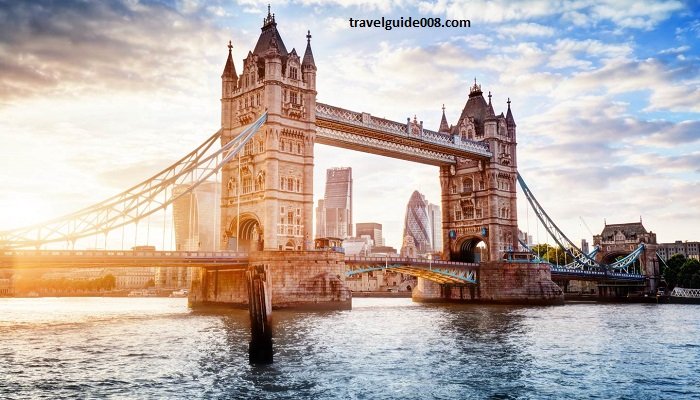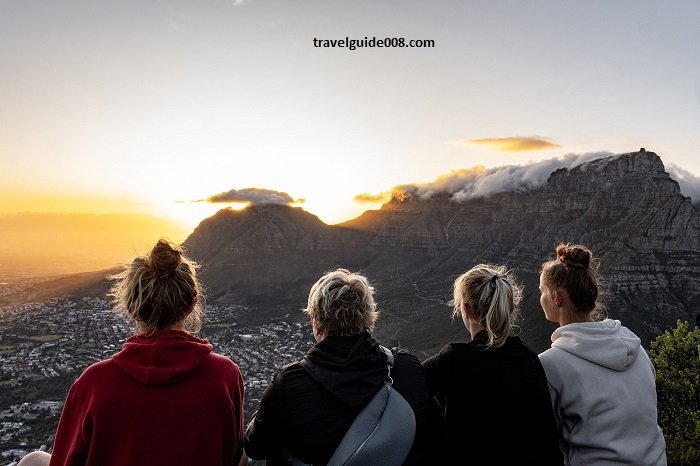The Best Travel Guides for Adventure: Exploring the World
The most essential aspects of Travel Guides are adventure, rest, and cultural exposure. Whether you’re travelling for a weekend or around the world, you’ll need the right guide.
Here’s an article discussing some of the best guides currently in the market, which target diverse destinations and styles to enable you to get the most out of your travels.

Importance of Travel Guides:
Travel guides are the best sources of information for any traveller in navigating unknown places. A travel guide gives insights into the local culture, and it also suggests where one should go, maps, accommodation, and food places. A good travel guide can help you find what’s worth seeing and avoid all the usual tourist traps for a richer travel experience.
Types of Travel Guides:
Before talking about a few specific recommendations, it would be helpful to know the types of travel guides.
1. Print guides: books that give detailed information about a place. The most popular series include Lonely Planet, Rick Steves, and Fodor’s.
2. Digital Guides: Apps and eBooks have become very popular because it’s convenient. Interactive maps, real-time updates, and user-generated content are common.
3. Specialised Guides: Some travel guides are specialised in specific areas, such as food, adventure, or cultural experiences.
4. Local Guides: Sites and portals like Airbnb Experiences and Viator have local guides, which gives travellers some kind of uniqueness.
Let’s look at some of the best travel guides for each category:
Top Print Travel Guides:
1. Lonely Planet:
Overview: Perhaps the most recognisable name in travel guides, Lonely Planet has books covering a gigantic range of destinations around the world. The guides are complete with practical information, maps, and cultural insights.
Why It’s Great: The Lonely Planet guides are very detailed and reliable. In many cases, they feature off-the-beaten-path suggestions that are ideal for adventurous travellers.
2. Rick Steves:
Overview: Rick Steves is passionate about travel to Europe. He publishes books of guides that focus more on cultural experiences and interactions with locals.
Why It’s Great: The pleasant, knowledgeable writing that is scattered throughout the pages of Steve’s guides makes his books easy to read and very helpful. His interest in public transportation and local restaurants would be well and truly immersed in the culture of Europe for the travellers.
3. Fodor’s:
Overview: Fodor’s guides range from the popular tourist sites to the least visited places. The information is detailed, ranging from sightseeing to dining and lodging.
Why It’s Great For: It has some good expert recommendations and curates itineraries for a well-rounded experience.

Digital Travel Guides:
1. Google Maps:
Overview: Google Maps is an excellent navigation tool that gives an idea of the place about local attractions.
Why It’s Great: This service provides real-time traffic updates, reviews, and photos that help travellers plan their days efficiently. The “Explore” feature allows them to find restaurants and activities based on user reviews nearby.
2. TripAdvisor:
Overview: TripAdvisor is the best comprehensive platform for those travellers who seek reviews for hotels, restaurants, and other attractions.
Why It’s Good: User-generated content brings travellers the latest and most diverse opinions regarding a destination, ensuring they make the best decisions. The website also includes options for booking, meaning users can plan their entire trip within one website.
3. Airbnb Experiences:
Overview: Airbnb Experiences brings travellers in touch with local hosts who present an opportunity to experience various unique activities, such as cooking classes or guided tours.
Why It’s Great: This site is real, allowing travellers to interact with locals and learn about their culture firsthand.
Specialised Travel Guides:
Food is an integral part of travelling, and special food guides can make your culinary journey more exciting. Some of the notable mentions are:
It gives you tips on finding authentic food experiences around the world. The Definitive Guide: Street Food Culture This guide delves into popular dishes and where to get them.
2. Adventure Travel Guides:
Any adrenalin junkie cannot read without adventure travel guides for fun. These books tip off readers on outdoor recreation pursuits, safety, and exactly where to go in an adventure
National Geographic Adventure Guides: These guides describe outdoor pursuit activities such as hiking and wildlife watching.
The Ultimate Hiker’s Gear Guide: Not so much a travel guide per se, but an amazing resource for those who plan their hikes, talk about gear and offer some good advice for hiking.
Local guides and apps:
1. Detour:
Summary: Detour offers local-led GPS audio tours offering an interesting perspective on destinations.
Why You’ll Love It: There is local storytelling that helps users better discover cities in a much more personal and engaging manner. That is great for self-guided travellers.
2. Komoot:
Description: It is an outdoor route-planning app for hiking biking and other outdoor exploration.
Why You’ll Love It: It allows routes based on the user’s level of experience and expertise. This is great for the adventure traveller.
3. Roadtrippers:
Roadtrippers is a guide specially designed for road trips and aids in planning the journey along with interesting stops on the way.
Why It’s Great:
This app discovers attractions, dining options, and beautiful routes that make the trip through roads worthwhile.
Travel Guide Selection:
Select the right travel guide based on your travel style and destination. Here are some suggestions for you:
Determine your needs: Are you looking for more detail in itineraries, cultural insight, or selections of adventure? Be transparent about what you most want in a travel guide.
Think About Your Destination: Some guides are more helpful in certain regions. If you are travelling to Europe, Rick Steves may be what you need, and if you’re going to Southeast Asia, Lonely Planet would be more suited.

Look for the most recent edition or a regularly updated guide, mainly if it’s an electronic guide since information evolves rapidly.
Read the reviews of other travellers to know how useful and accurate this guide is.